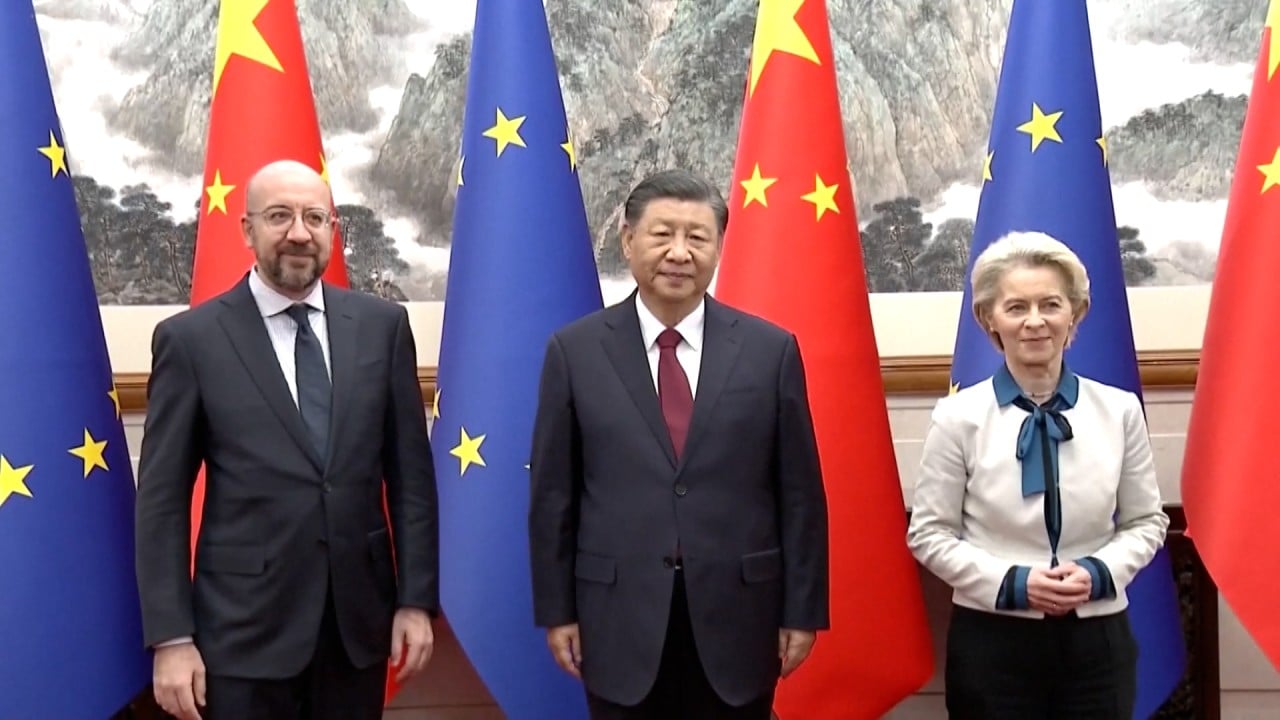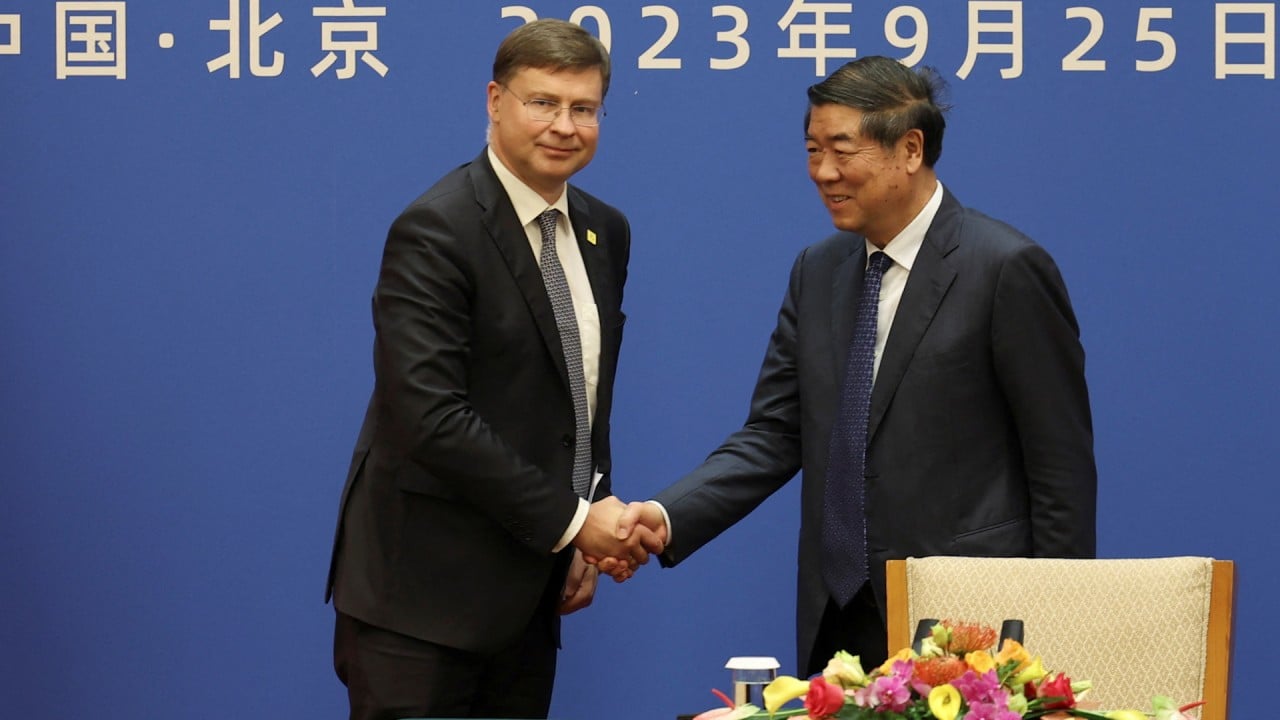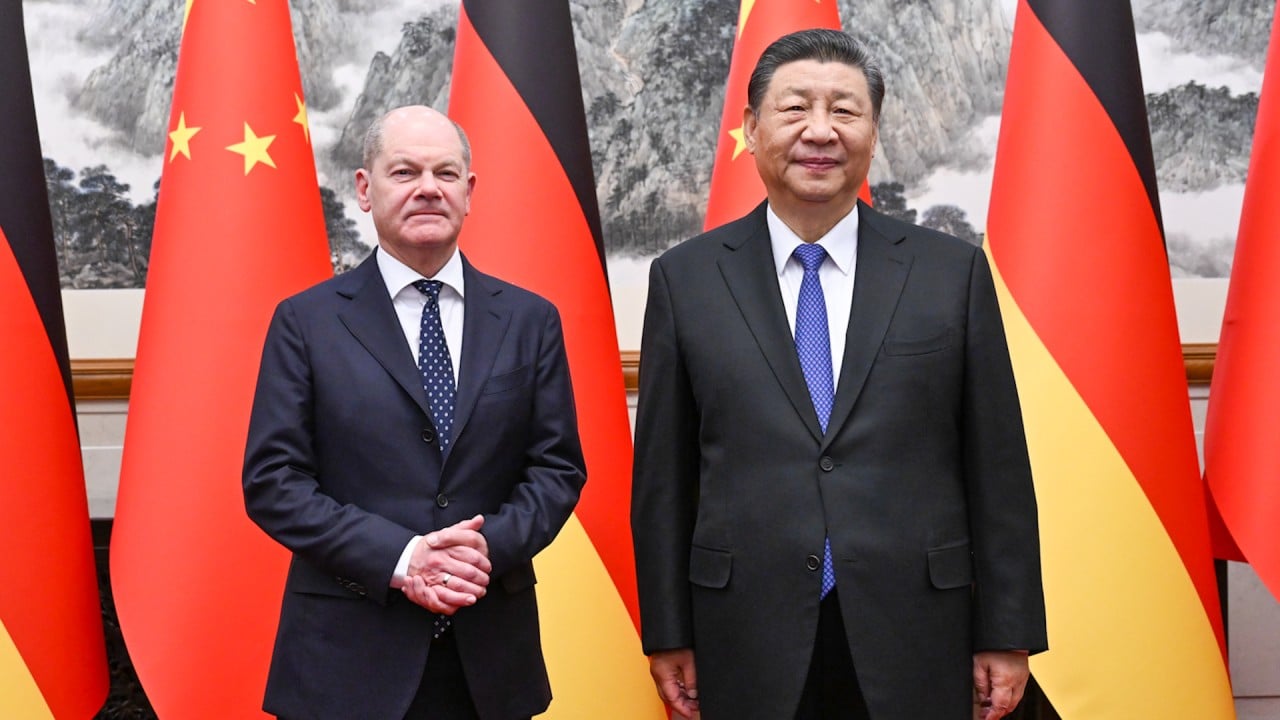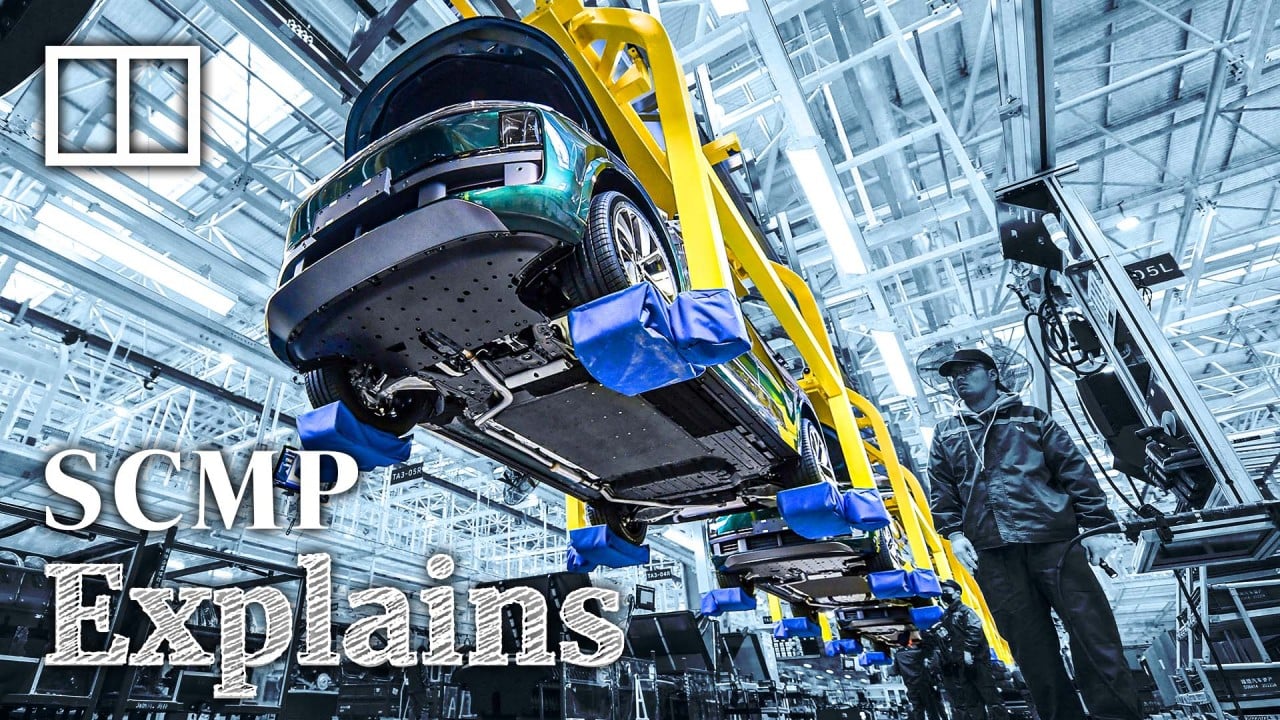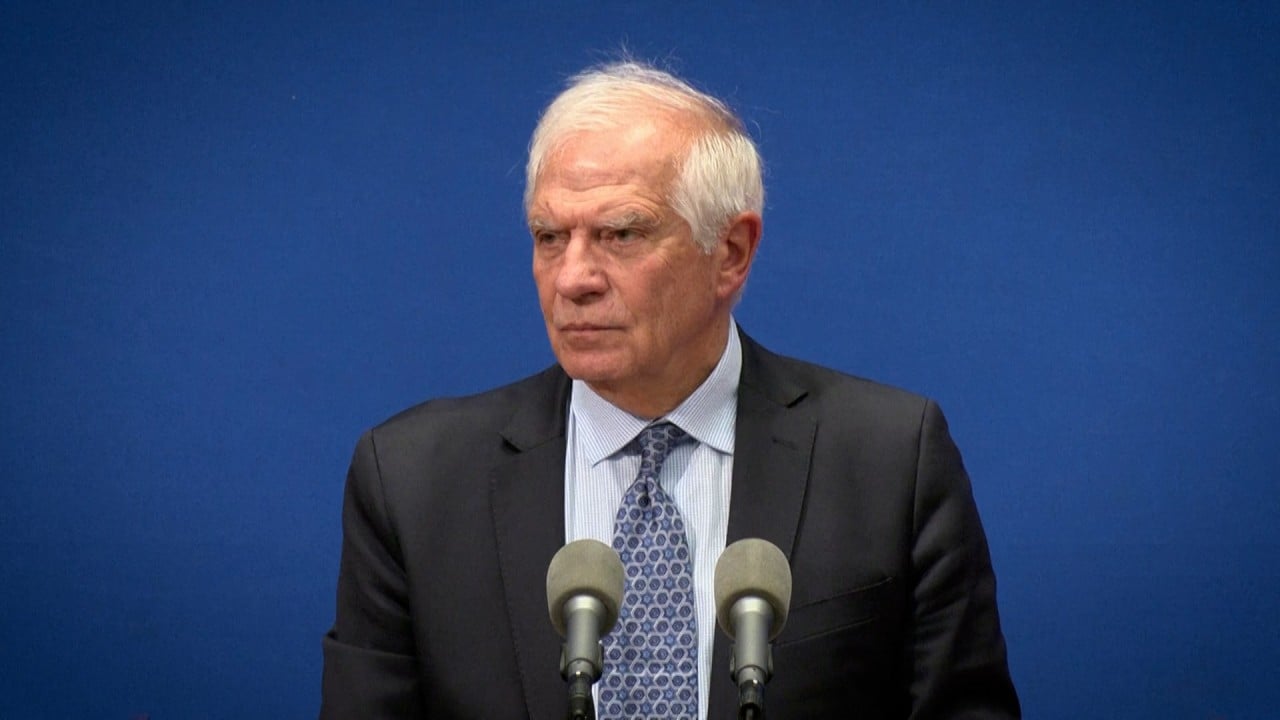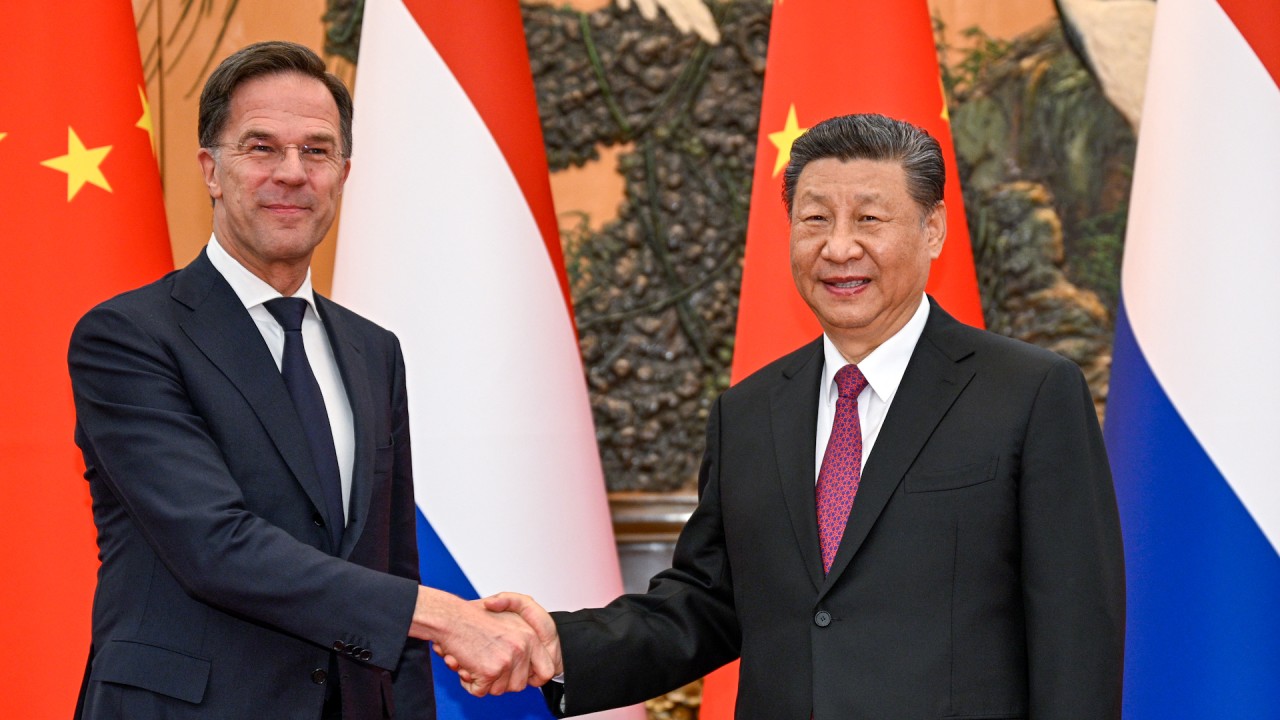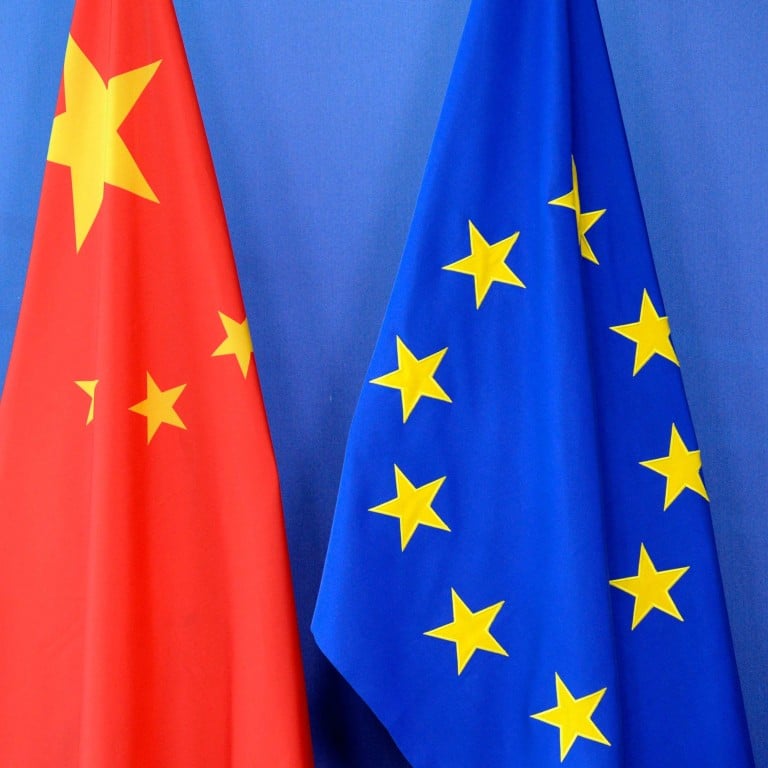
Nuctech raids leave Chinese businesses reeling as new EU foreign subsidies regulation shows its teeth
- Dramatic search for evidence of financial help from Beijing stuns businesses and competition lawyers in Europe
- Seizures of IT equipment and phones made under a regulatory tool that Chinese companies need to learn about quickly, experts warn
In the sort of raids usually reserved for busting cartels, officers seized IT equipment and mobile phones.
The “competition officers” – from Brussels, Poland and the Netherlands – were looking for evidence of financial help that Nuctech may have received from the Chinese government.
In Brussels policy circles, Tuesday’s raids were about as dramatic as it gets, and the revelations – first reported by the South China Morning Post – sent shock waves through the EU.
They suggest that the European Commission has moved to a new stage in cracking down on what it views as one of the biggest risk to the Eurozone economy: foreign subsidies from Beijing, which it believes are causing industrial overcapacity that could see Europe flooded with cheap Chinese imports.
On Wednesday, Chinese businesses in Europe were still reeling from the raids, which stunned even the competition lawyers advising these companies.
“This action surprised even me – a dawn raid in Europe to find out more information about subsidies granted in China makes no sense,” said Andreas Reindl, managing partner at Brussels law firm Van Bael & Bellis, which specialises in competition law.
Reindl, who published a book in January about the new foreign subsidies regulation (FSR) under which the inspections occurred, described the raids as “political gamesmanship”, adding that the target – Nuctech – is probably “also perplexed and doesn’t know anything about the FSR”.
But if Chinese businesses want to continue working in Europe, they had better learn about it fast. Since January, the EU has wielded the weapon, which was adopted last year, four times. On each occasion, it has targeted Chinese companies.
The FSR is designed to root out “market-distorting” handouts, by forcing non-European entities to be as transparent about what they receive from their governments as firms from the bloc, which are subject to stringent state aid disclosure rules.
It can be triggered during procurement processes, as well as merger and acquisition activity. Or – as with Nuctech – the commission can decide to investigate any business operating in the EU that it suspects has received state subsidies and is disadvantaging local competitors.
While the commission did not name Nuctech in its statement about “unannounced inspections”, it said that officials had “indications that the company may have received foreign subsidies that could distort the internal market”.
Nuctech – a partially state-owned offshoot of Tsinghua University that was previously run by Hu Haifeng, son of China’s former president Hu Jintao – has been frozen out of some Western markets over security concerns.
The company said it was “cooperating with the European Commission and is committed to defending its reputation as a fully independent and self-supporting economic operator”.
Michel Struys, a Brussels-based partner at the law firm Hogan Lovells, said every Chinese company in the EU should be prepared to receive a knock on the door, given the trigger-happy nature in which the EU is using the FSR.
“Chinese companies have been put on the back foot, but the best form of defence is attack, and that is to be prepared. A lack of preparation is the real problem here,” said Struys, who has advised some of the companies already targeted under the new law.
Even before Tuesday’s events, businesses were worried. Before Nuctech, regulators went after European subsidiaries of solar giants Longi and Shanghai Electric, as well as CRRC Corporation Limited, the state-owned rolling stock company.
The rapid-fire nature of the tool flies in the face of conventional wisdom that Brussels is a slow and lumbering bureaucracy. Trade investigations typically take years to conclude, and one open case listed on the World Trade Organization’s website has been at the consultation stage since April 1995.
But the FSR comes from the world of competition, where things move much more quickly. In the case of procurement or takeover cases investigated under the law, investigators have just 110 days to complete their work.
They also demand levels of openness that many Chinese businesses are not ready for. EU authorities can command Chinese firms operating in the bloc to hand over their books for forensic scrutiny, with little time to get them in order.
The local subsidiary of rail company CRRC withdrew from a bidding process in Bulgaria after balking at the requirements of complying with a procurement investigation. EU industry boss Thierry Breton responded on X, formerly Twitter, that the inquiry had “already yielded results”, suggesting this was what he had intended to happen.
According to Struys, “the reaction time is slow” for Chinese companies. “They need to talk to x, y and z, sometimes even the party. Many of them are not ready for this,” he said.
In an interview with the Post, Fang Dongkui, secretary general of the China Chamber of Commerce to the EU, laid out a litany of grievances with the tool.
The commission’s definition of “foreign financial contributions” was “overly broad and non-exhaustive”, he said.
According to Fang, Brussels is “scrutinising subsidies received by Chinese parent companies that were passed through on to their European entities”, which the chamber thinks should be treated as separate entities.
Perhaps most concerning for Chinese businesses is the danger that adhering to this law could set them up to contravene other laws in China.
European businesses have complained of the challenges of complying with Beijing’s anti-espionage and data transfer regulations, while continuing to satisfy incoming rules on supply chain audits set in Brussels.
Now it appears that the same anxiety could be spreading to Chinese firms too.
Feng said that “in specific instances, the commission had requested confidential bidding information, including pricing details, contracts or documents containing business secrets that allegedly could be related to subsidies”.
These actions are “posing a risk [to Chinese companies] of breaching relevant tender regulations or Chinese laws”, he said.
The instrument has added new wrinkles to an already strained EU-China trading relationship. Brussels has 34 open trade investigations against Beijing, while two-thirds of its active trade defence measures – currently numbering 184 – are against China.
For François Chimits, an analyst of Chinese trade and economic activity at the Mercator Institute for China Studies in Brussels, this could be the EU tool with the most teeth.
So sweeping are its requirements, it could act as a “de facto ban” for many firms, who would simply not be able or prepared to comply. “The commission has an awful lot of leeway to expel almost any Chinese firm,” he said.
“Most of them receive subsidies, so this could lead to a de facto ban from the single market on some Chinese companies in certain sectors. It is a more elegant way of doing so than an outright ban Instead it creates a very significant barrier to entry.”


